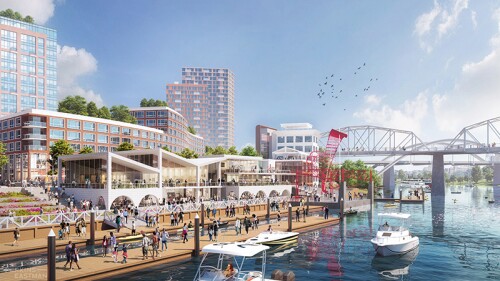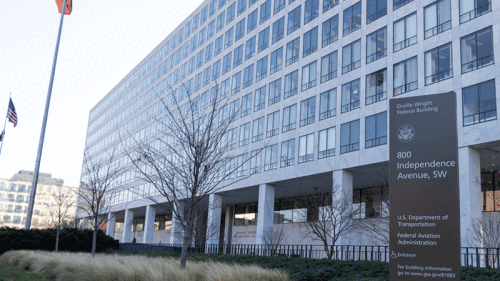Resilience and Sustainability
ULI has announced that Blackstone Real Estate portfolio companies have joined the ULI Greenprint Center for Building Performance—a global alliance of real estate owners and investors dedicated to enhancing building value by reducing carbon emissions and incorporating sustainability across their portfolios. With this addition, ULI Greenprint’s membership exceeds 120 real estate companies, illustrating continued interest in sustainability from the industry.
ULI has earned a 2023 ENERGY STAR® Partner of the Year Award from the U.S. Environmental Protection Agency (EPA) for the third consecutive year. ULI has received the award for its efforts promoting energy-efficient and sustainable buildings and for its thought leadership on net zero and energy conservation throughout the real-estate sector.
Last year, Massachusetts passed the Multi-Family Zoning Requirement for MBTA Communities (also known as Section 3A). When fully implemented, the law will affect the 175 municipalities—half of the total in the commonwealth—that are served by the state’s mass transit system. Section 3A mandates that there must be at least one zoning district where multi-family housing is allowed “as of right.”
The Imagine East Bank Plan, a strategic vision plan adopted last fall by the Metropolitan Government of Nashville, offers a rare opportunity to reimagine how development, land use, transportation, recreation, and resilience can come together.
After another active hurricane season, Florida’s resilience continues to be a huge and growing practical and financial priority. Strategic planning focused on strength and durability is helping mitigate wind and flood damage.
A member of ULI Northwest highlights Oregon’s $5 million Brownfields Properties Revitalization Fund, which offers forgivable loans to private owners and operators to support remediation at sites that are contaminated or perceived to be contaminated.
Brian Swett, a longtime member of ULI Boston and Arup’s Americas East Leader, has been announced as the chair of the ULI Randall Lewis Center for Sustainability. Working with ULI staff, Swett will serve a two-year term with the Lewis Center. A former chief resilience officer for the city of Boston, Swett recently spoke to Urban Landabout the opportunities he sees in the coming months.
Experts discuss the effectiveness of policies that are aimed at increasing energy performance in buildings; the challenges of measuring and reporting climate-related physical and transition risks; strategies for navigating the complexities and uncertainties of environmental, social, and governance investing; and related trends.
For decades after its construction in the 1960s, locals had a wry nickname for Boston City Hall Plaza—“the red tundra,” for its wide, treeless, wind-swept expanse of red brick. In the last decade, however, the plaza transformed into an inviting destination for all.
Energy performance requirements for federal buildings could propel change across the real estate industry. Because the federal government is the country’s largest owner and occupier of space, the rules will have a sizable impact.







